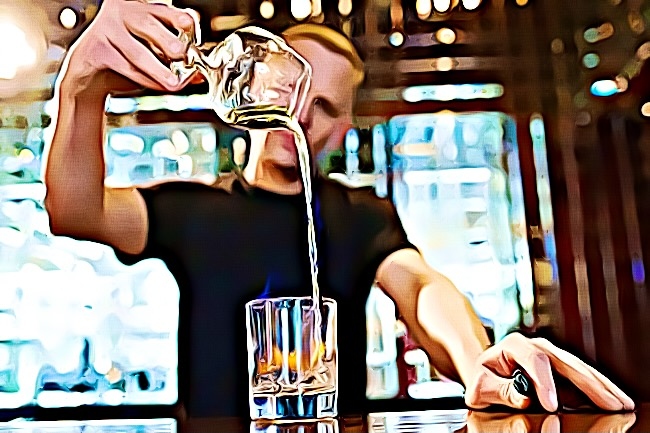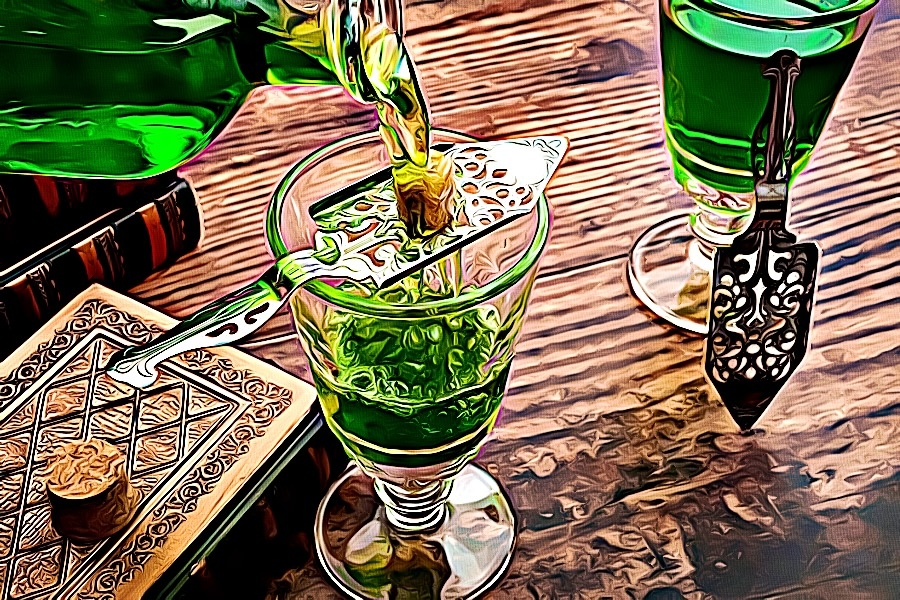Absinthe: Learning More about the Drink and Its Effects
In popular Hollywood movies, absinthe is often portrayed as a wonderful yet dangerous drink. And while there’s actually a tad bit of truth in both the criminalization and glamorization of absinthe in films, there are also other facts about this powerful drink that many people do not know about.
In this article, we will talk about what absinthe really is and what effects it has on a person to have a deeper understanding of this rumored spirit.
What Is Absinthe?
Absinthe is an alcoholic beverage created from botanical herbs such as anise, fennel, and wormwood. And due to its unique emerald color, it is also known as the Green Fairy in some parts of the world. It was first developed in Switzerland back in 1972, gaining widespread popularity as soon as it was commercially launched in the European market. However, it didn’t quite reach American soil up until the year 1878.
With that said, absinthe actually has a very complicated and controversial history. Back in the day, people claimed that it could cause hallucinations, becoming a popular drink to artists who needed inspiration for their masterpieces.
After a few years, rumors about the hallucinogenic effect of absinthe became rampant. In addition to this, the discovery that wormwood, one of the main ingredients in making absinthe, contains a toxic chemical further fueled the misunderstanding about this potent spirit. As a result, it was inherently banned in many countries a couple of decades after its introduction and release in the market.
However, the alleged hallucinogenic effects aren’t the only reason that caused the prohibition of absinthe in various places. In general, this beverage has 45 to 74 percent alcohol content, making it one of the strongest types of alcohol in the entire world.
How Do You Drink Absinthe?
Due to its extreme alcohol content, it’s inadvisable to take absinthe as a shooter alone. Yet, there are still a lot of individuals who dare to drink it with just ice cubes. Nonetheless, the most common way to drink it is to dilute it first by pouring cold water slowly over a sugar cube that is placed on a slotted spoon over a shot of absinthe. This results in a weaker concoction that doesn’t alter or change the taste of the drink.
There are several renditions of how absinthe is prepared in some parts of the world as well. In fact, some make it into a cocktail in order to weaken the incredibly high level of alcohol content in the spirit before drinking it.
Does Absinthe Cause Hallucinations?
Despite how absinthe is popularly known to cause hallucinations and visions, there’s no actual truth to this piece of information. Indeed, wormwood in absinthe contains thujone, a chemical known to be a convulsant. However, you’d have to consume high doses of it to even feel such egregious effects.
Furthermore, thujone is actually present in tarragon and sage, both of which are used by many extensively without reported ill effects. Hence, it’s practically impossible for absinthe to make you see hallucinations even after drinking a significant amount.
What Are the Short-Term Effects of Absinthe?
Given that claims about absinthe as a hallucinogen is not true, it leaves one to wonder whether there’s some truth behind the other alleged side effects of absinthe as well. And as mentioned earlier, the glamorization and criminalization of absinthe are pretty accurate in some way.
Even though it cannot make you hallucinate, it still remains true that absinthe can give a particular individual more complications than just getting dead drunk. Nonetheless, the side effects of absinthe mainly involve symptoms of extreme drunkenness like the ones listed below:
1. Loss of Inhibition
According to research, beverages with high alcohol content hinder the prefrontal cortex from functioning as it should. As a result, you suffer from loss of inhibition that disrupts the flow of rational and logical thoughts when you’re intoxicated. This makes it challenging to make good decisions, impeding you from thinking before you act.
2. Slurred Speech
A change in speech is often an indicator of alcohol intoxication. And while it’s normal to hear or see people start to slur when they’re drunk, there is only a little research that explains why this happens to people who drink. Nonetheless, based on findings from research studies, an apparent change in speed production is noticeable in drunk people due to the effects of alcohol on the cerebellum.
3. Blurry Vision
Research shows that one of the most common effects brought on by heavy drinking is double vision, better known as blurry vision. Because alcohol is a depressant, it weakens eye muscle coordination, slowing your reaction time and impairing coordination at the same time.
4. Poor Coordination
Based on a study conducted in 2015, alcohol increases the production of GABA in the brain, causing neurons to fire a little slower than usual. This results in slower movements and changes in time perception. In addition to this, alcohol is also known to hamper the production of glutamate, a neurotransmitter responsible for stimulating excitement and energy, further enhancing the sedating effects of the brain.
5. Overconfidence
Studies show that alcohol boosts the production of dopamine, a neurotransmitter associated with pleasure. As the brain releases a flood of this chemical when affected by alcohol, it makes individuals feel pretty confident and powerful. And since alcohol also impairs good judgment, you are likely to feel invincible when you’re drunk.

What Are the Long-Term Effects of Absinthe?
Absinthe is considered one of the most potent alcoholic beverages in the world. Thus, it also yields long-term effects that can be detrimental to your health. According to research, consistent consumption of alcohol, be it absinthe or not, lead to medical problems such as cardiovascular illnesses, reproductive issues, damage in nerves, liver diseases, digestive disorders, alcohol poisoning, and many more.
In addition to this, overconsumption may result in alcohol reliance and addiction. This doesn’t just open you up to a wide array of physical ailments but also adversely impacts your emotional and mental health.
Why Is Absinthe Banned in the United States?
In general, absinthe is not a controlled substance in the United States. But since it’s a pretty potent alcoholic beverage, the government still prohibits its sale in liquor stores and bars. Nonetheless, it’s actually legal to purchase and possess absinthe in the country.
But unfortunately, it’s pretty challenging to find a place where you can buy one. There are also certain restrictions and limitations on the type of absinthe you can purchase. If you ever manage to find a shop to purchase a bottle from, it will probably contain only a small amount of thujone.
Conclusion
Far from what others believe, absinthe is not really what people make it out to be. It doesn’t cause hallucinations, so it’s not at all that dangerous. However, the fact that absinthe is one strong alcoholic beverage still remains. And pretty much like any alcoholic drink, it does have harmful effects on the body. While there’s no harm in giving it a try for once in your life, you must always keep in mind that alcohol is dangerous. Thus, it would be better to steer clear of consuming such substances to ensure a healthy mind and body.
Source: https://www.ncbi.nlm.nih.gov/pmc/articles/PMC1127080/

